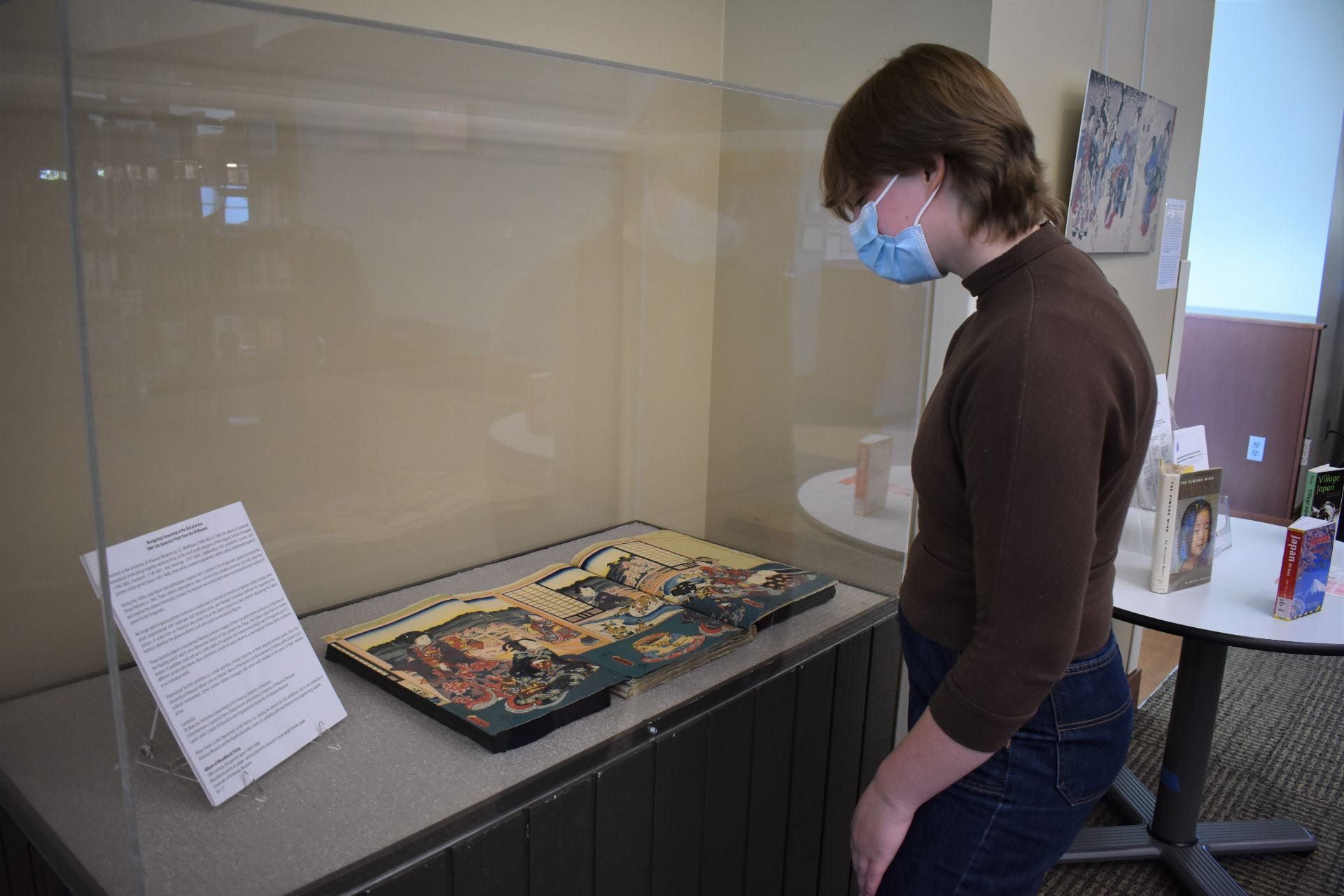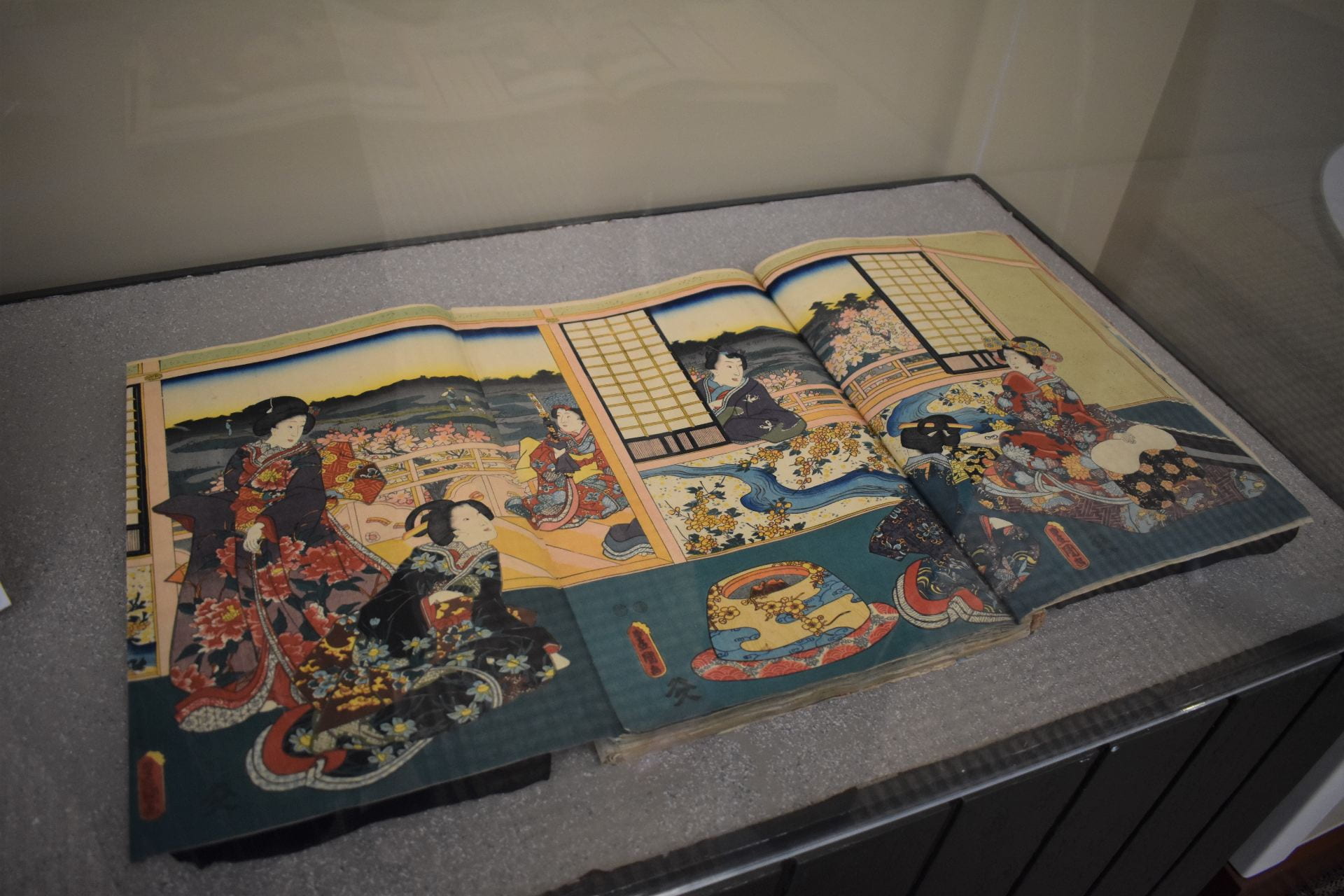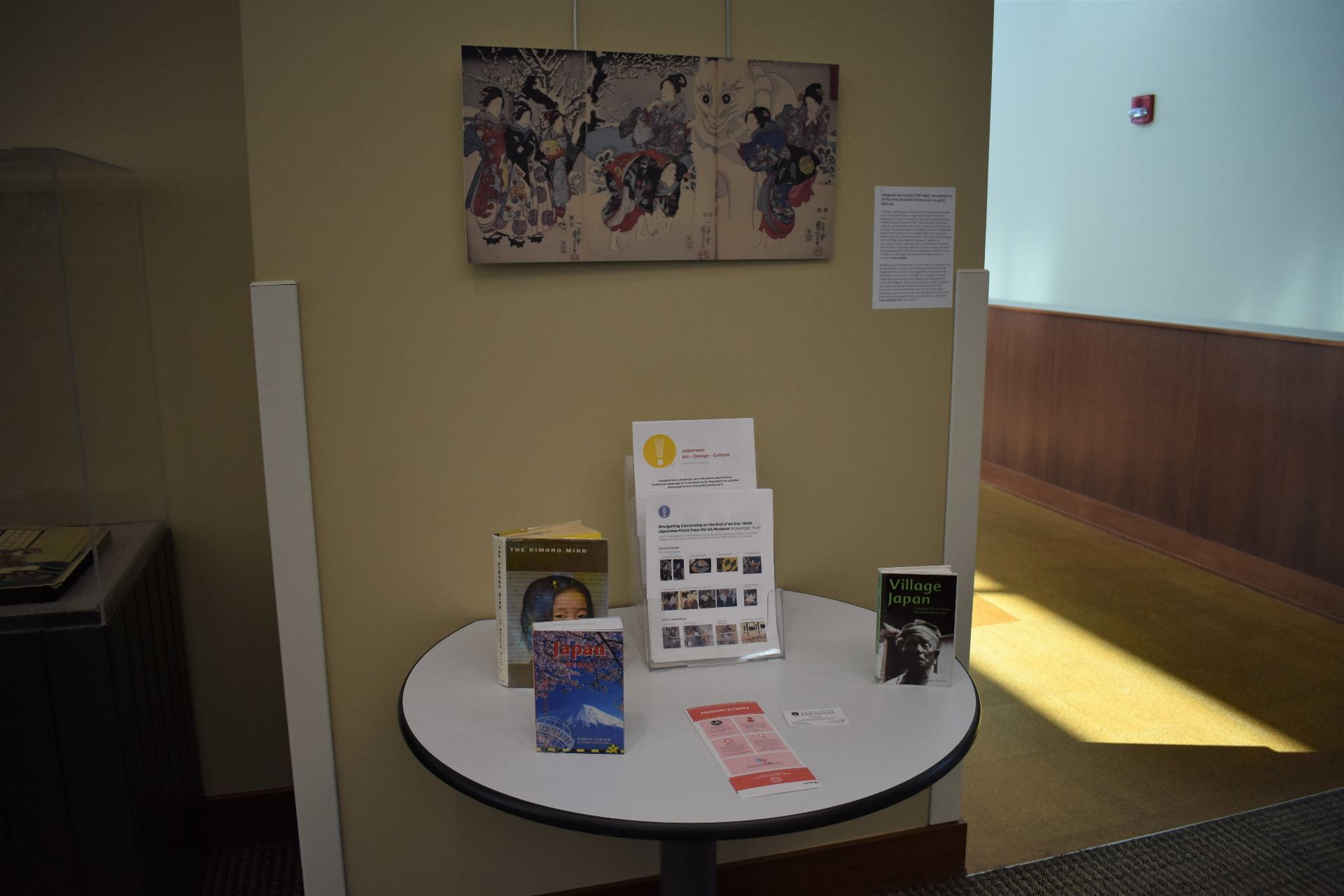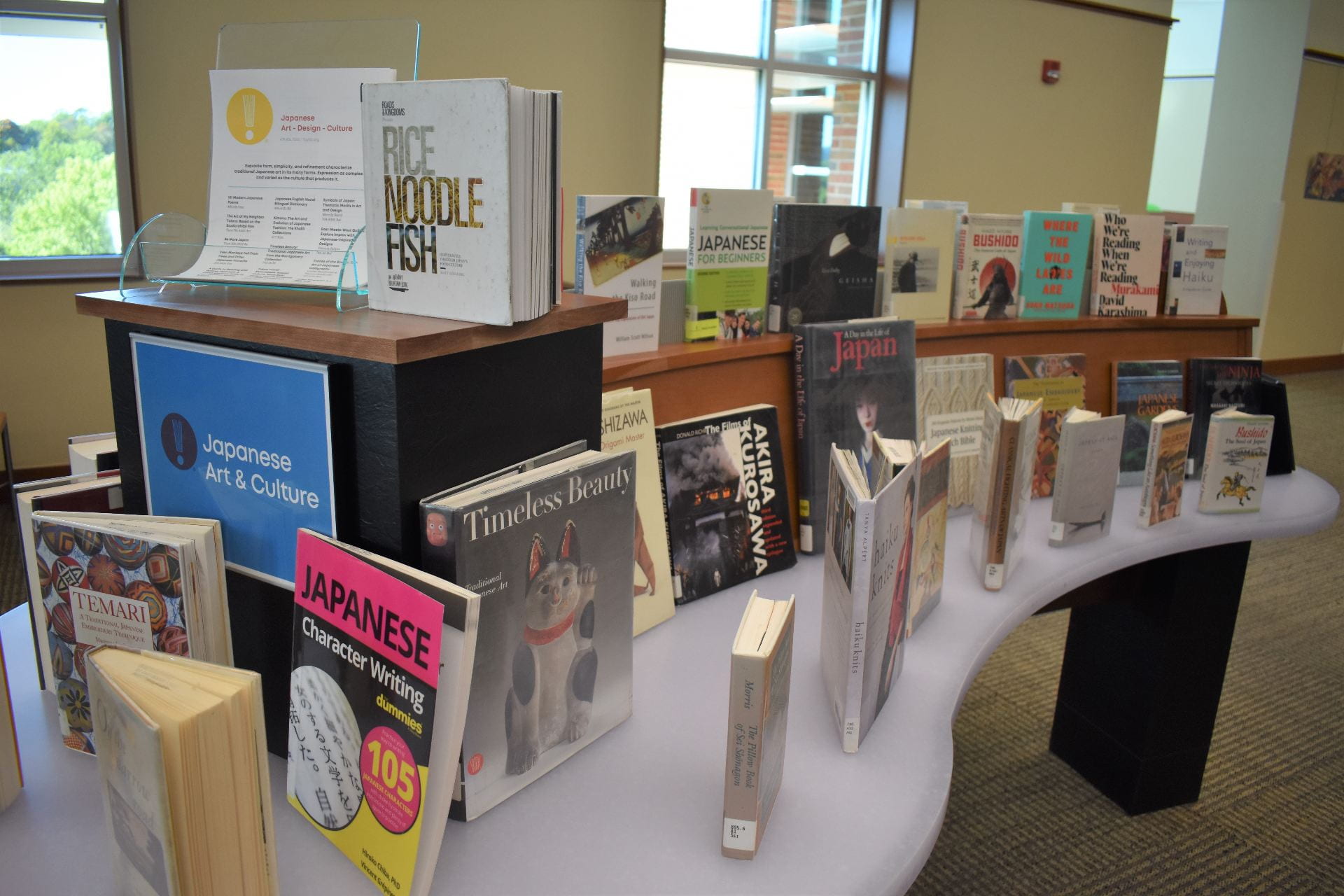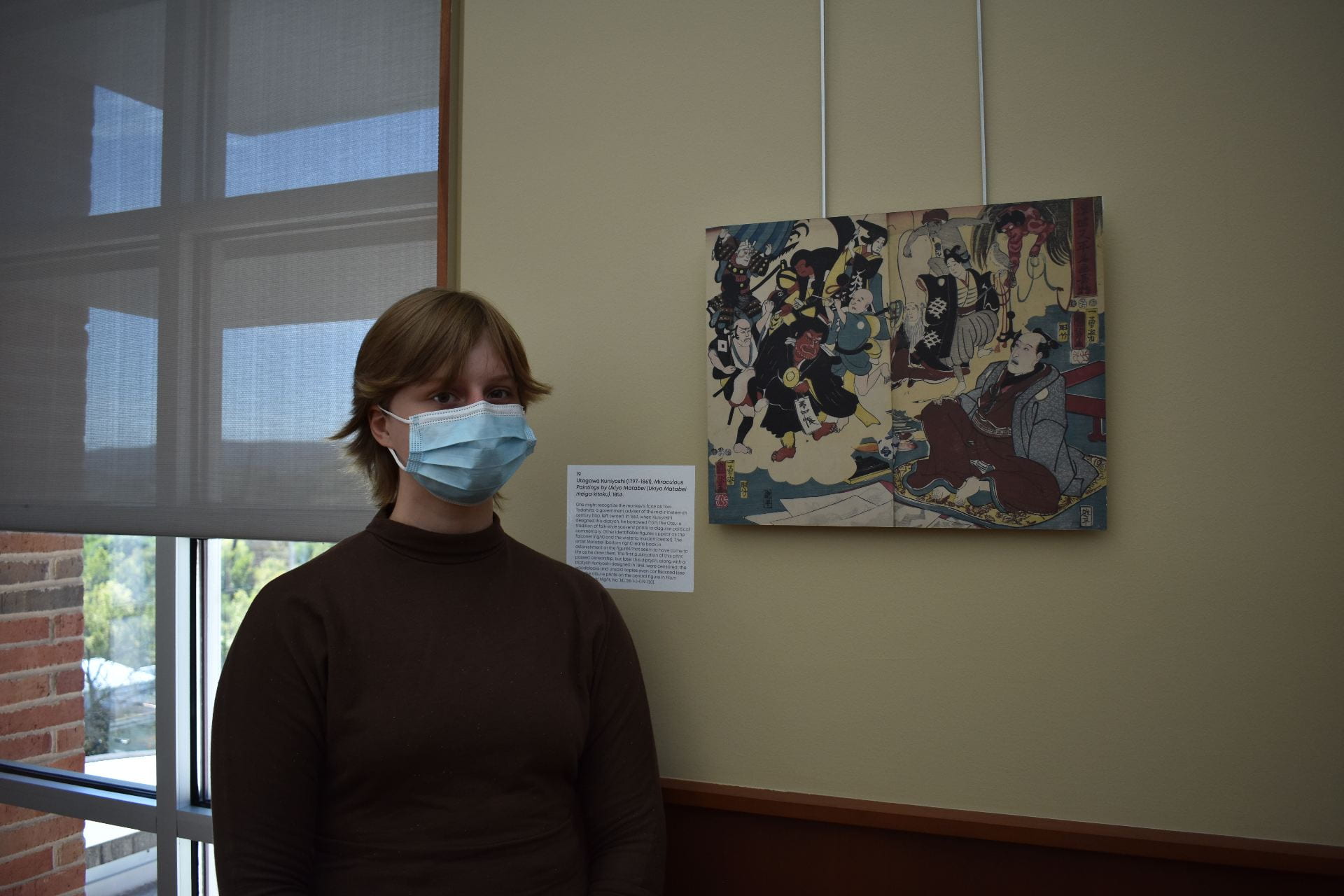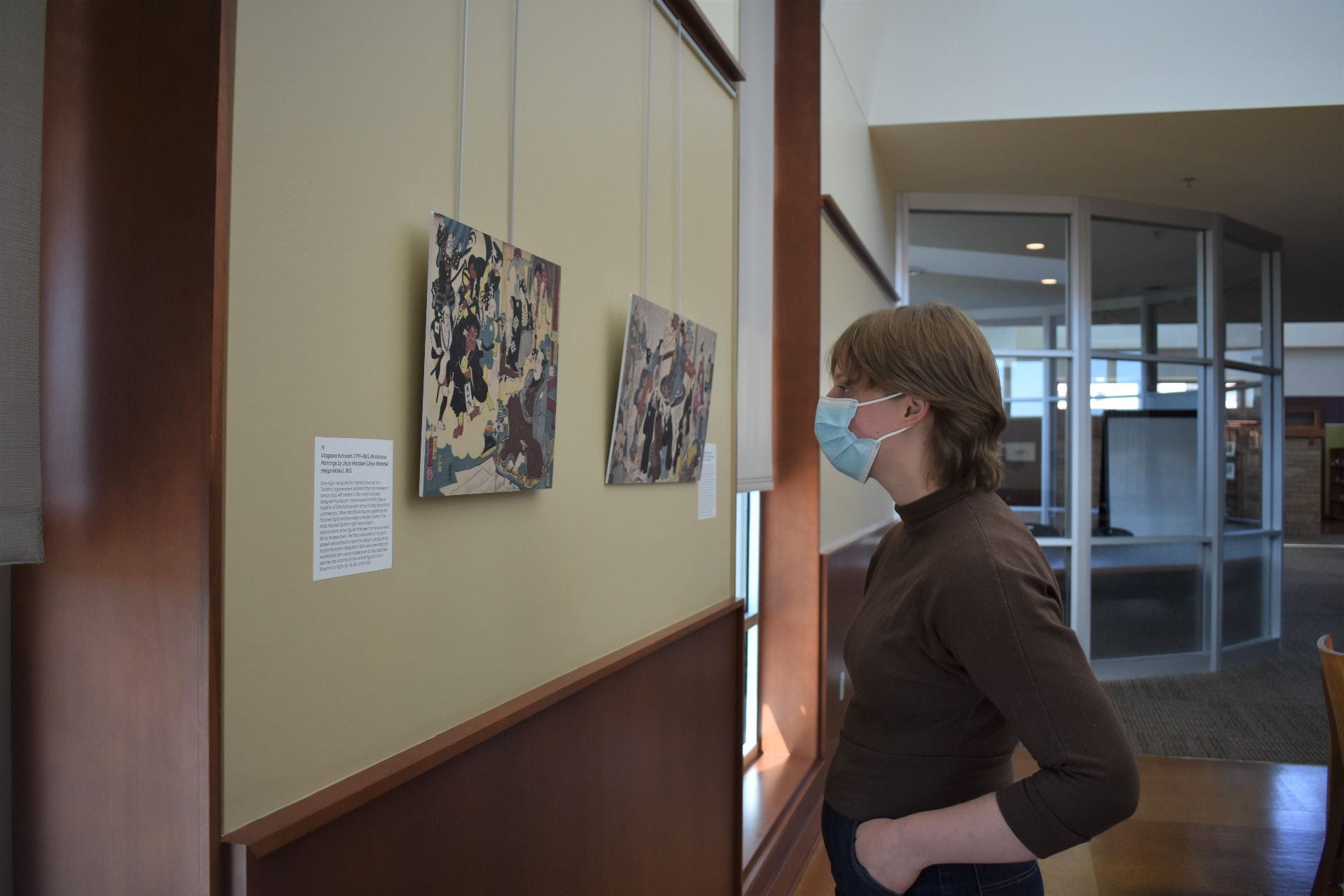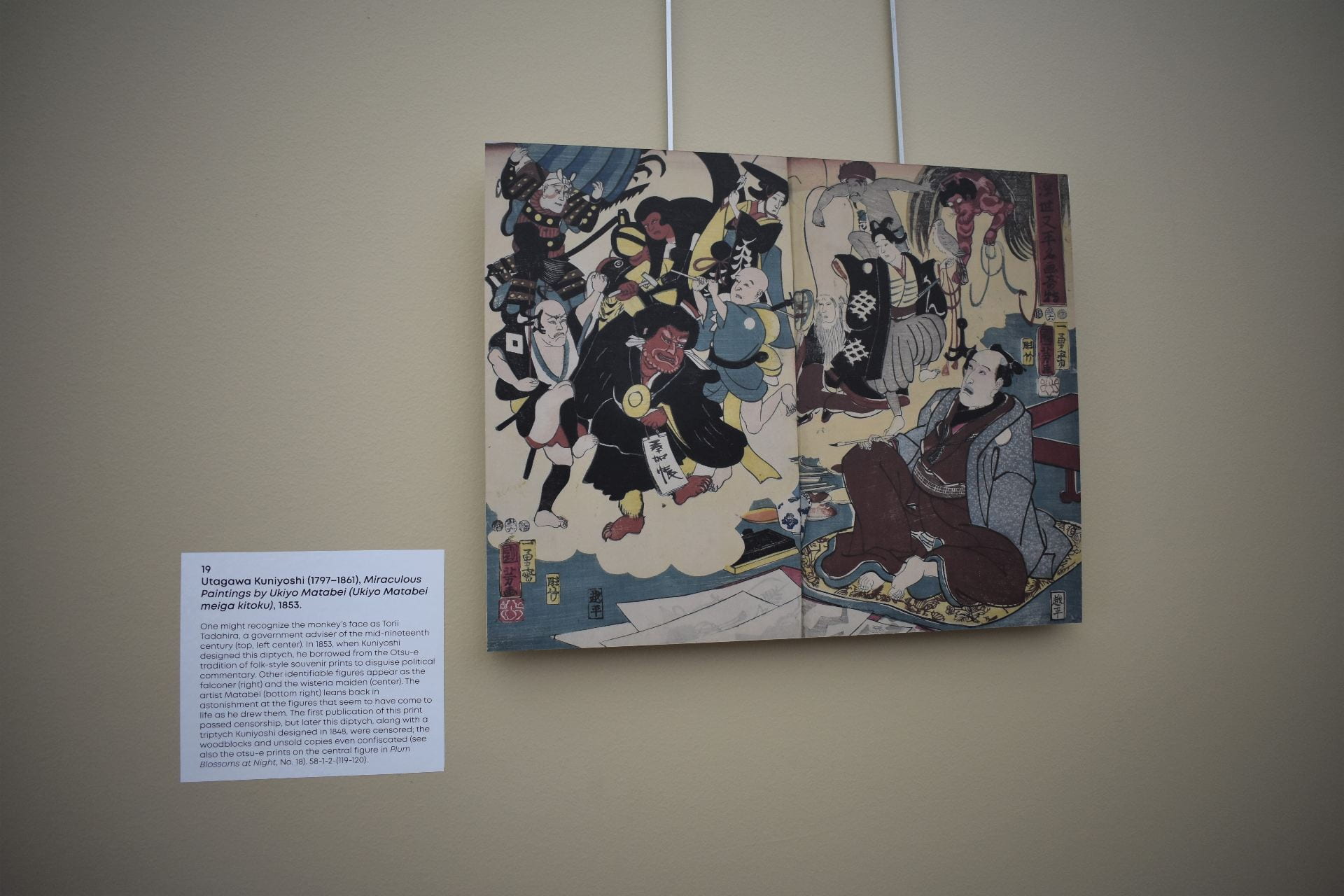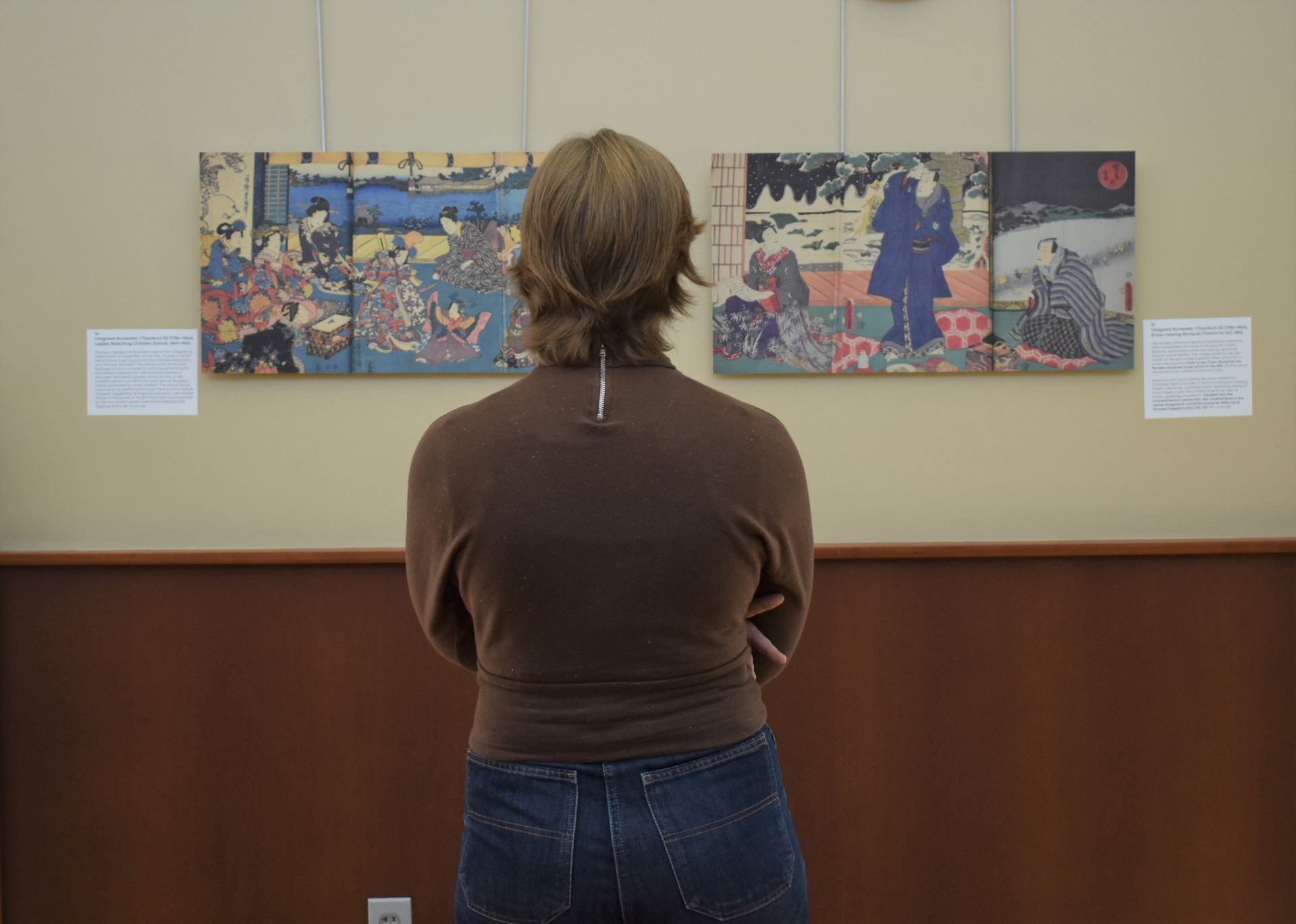Chloe Biermann is a sophomore Honors College and Governors Distinguished Scholar majoring in Art History and French. They were a 2021 summer intern at the UA Museum and a co-curator along with School of Art professor Oh Mee Lee for the Fayetteville Public Library’s exhibit “Navigating Censorship at the End of an Era: 1840s Japanese Prints from the UA Museum.” They intend to pursue a graduate degree in Art History and museum studies, with the ultimate goal of conserving clothing and textiles. Raised in Fayetteville, Chloe loves roller-skating along the town’s numerous trails, knitting, and caring for their pet rabbits.
Interview with Chloe
What was the focus of your research with Oh Mee Lee?
I was tasked with tracking down each of the prints in the collection as well as researching the art of printmaking, the history of ukiyo-e, and the symbols utilized in these works. When writing the condition reports, I had to research the various signatures and seals used by the publishers, censors, and artists and used this information to estimate the date of publication for each print.
How did you end up researching with Oh Mee Lee?
I, as well as all other undergraduate students of art history, received an email from Dr. Oh Mee advertising an upcoming internship. I was nervous but applied anyway, and it ended up being a wonderful academic partnership.
Did you know anything about the Japanese print book or Japanese art prior to this research experience? If not, what was the most surprising aspect of your research?
Most people are familiar with Japanese prints without even realizing it; The Great Wave off Kanagawa by Hokusai might be the most famous work of Japanese art. However, I did not know too much before starting. I was most surprised by the amount of work it took to create the most effortlessly beautiful attributes of woodblock prints, such as round circles, “brush strokes,” and calligraphy.
What was the most difficult part about working with the Japanese prints and the subject area in general?
I had a hard time physically and mentally with handling the prints, as each time I took the album out for research I would notice increased buckling, creasing, and even flaking of the paper. Another difficult part was finding the titles, as I cannot read Japanese and had to largely rely on Dr. Oh Mee’s limited translations and sift through catalogues in hopes of recognizing one of the works.
Although you and Dr. Oh Mee did all the research and the planning, how did the University of Arkansas Museum aid you in your research and in that process beyond providing access to the prints?
Curator Laurel Lamb helped a lot, from letting me borrow a book on writing condition reports to aiding us in photographing the prints for the catalogue and exhibition. She also kindly looked over everything we would write and was a huge help in setting up and designing the exhibition. Mary Suter let me use her office as a workspace, which I am also very thankful for.
What do you hope the public learns or gains from your research and your exhibit?
I hope people will develop an appreciation for the ingenuity of our three artists in how they navigated and subverted the censorship they experienced in their time. Academics used to regard this period of ukiyo-e as “decadent” and “in decline,” which invalidates and minimizes these truly amazing works. I would like these works to be appreciated in much the same way old mass produced posters and prints of Europe and America are today for both their cultural and artistic value.
How have you learned from this experience? And has this influenced your future career or academic goals?
I have not only improved my research and writing skills but also learned so much about the actual day-to-day experience of working in a museum. It has always been my dream to do so for a living, and this experience only further confirmed this goal. I have also strengthened my confidence during this internship and feel unafraid to pursue future internships and jobs in museums.
What would you tell freshmen, who feel like they don’t have enough qualifications to apply to that study abroad trip or that they won’t be accepted to that internship because they’re freshmen?
It never hurts to just go ahead and apply! If you do not get accepted, you do not get accepted, and you can move on and apply for other things. It does feel scary to open ourselves to rejection, but by applying we are also opening ourselves to life-changing experiences and opportunities. I was convinced I wouldn’t get the internship, but here I am. So, although it has been said a million times before, it never hurts to just do it!
